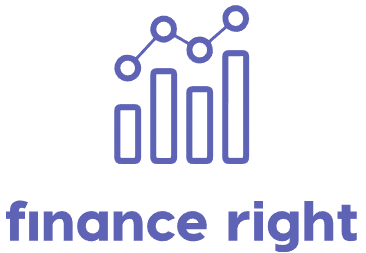In an era defined by technological innovation and digital transformation, the landscape of personal finance is undergoing a profound evolution. From mobile banking and robo-advisors to blockchain and artificial intelligence, technology is reshaping how individuals manage their money, make investment decisions, and plan for their financial futures. Let’s explore the multifaceted impact of technology on personal finance and the opportunities and challenges it presents.
- Convenience and Accessibility:
Technology has democratized access to financial services, making it easier than ever for individuals to manage their finances from anywhere, at any time. Online banking, mobile payment apps, and digital wallets enable seamless transactions, bill payments, and account management from the palm of your hand. The convenience and accessibility offered by technology empower individuals to take control of their finances and make informed decisions on the go.
- Financial Education and Literacy:
Technology has become a powerful tool for financial education and literacy, providing individuals with access to a wealth of resources, tools, and educational content to enhance their financial knowledge and skills. Personal finance apps, budgeting software, and online courses offer interactive learning experiences and practical insights into managing money, investing wisely, and planning for major life events. Technology-driven platforms also facilitate peer-to-peer learning and community engagement, enabling individuals to share best practices, seek advice, and support one another on their financial journeys.
- Automation and Efficiency:
Advancements in automation technology have revolutionized how individuals manage their finances, streamline administrative tasks, and optimize their financial workflows. Robo-advisors leverage algorithms and data analytics to provide personalized investment advice, asset allocation, and portfolio management services at a fraction of the cost of traditional financial advisors. Automated savings apps and round-up features help individuals effortlessly save and invest spare change, build emergency funds, and achieve their savings goals with minimal effort.
- Transparency and Accountability:
Technology has increased transparency and accountability in personal finance, empowering individuals to make more informed decisions and hold financial institutions accountable for their actions. Online banking platforms and financial aggregator apps provide real-time access to account balances, transaction histories, and fee disclosures, enabling consumers to monitor their financial activity closely and detect unauthorized charges or fraudulent activity promptly. Moreover, blockchain technology offers immutable, transparent ledgers for tracking transactions and verifying ownership, enhancing trust and security in financial transactions.
- Security and Privacy Concerns:
Despite the benefits of technology in personal finance, concerns about security and privacy remain prevalent. As financial transactions increasingly shift online and data breaches become more common, safeguarding sensitive financial information against cyber threats, identity theft, and fraud is paramount. Financial institutions and technology providers must invest in robust cybersecurity measures, encryption protocols, and multi-factor authentication methods to protect customer data and preserve trust in digital financial services.
- Personalization and Customization:
Advances in data analytics and machine learning enable financial institutions to deliver personalized and customized financial solutions tailored to individual preferences, goals, and risk profiles. Personalized investment portfolios, targeted product recommendations, and tailored financial advice empower individuals to make decisions aligned with their unique circumstances and aspirations. By leveraging technology-driven insights and predictive analytics, financial institutions can anticipate customer needs, anticipate trends, and deliver value-added services that enhance the overall customer experience.
- Financial Inclusion and Empowerment:
Technology has the potential to promote financial inclusion and empower underserved populations by expanding access to banking services, credit, and investment opportunities. Digital banking solutions, mobile money platforms, and microfinance initiatives enable individuals in remote or underserved communities to access basic financial services, build credit histories, and participate in the formal economy. Moreover, technology-driven innovations such as peer-to-peer lending, crowdfunding, and digital currencies offer alternative financing options for entrepreneurs, startups, and small businesses, fostering economic growth and empowerment at the grassroots level.

In conclusion, the impact of technology on personal finance is profound and far-reaching, offering unprecedented opportunities to enhance financial well-being, empower individuals, and drive economic progress. By leveraging technology effectively, individuals can gain greater control over their finances, access innovative financial products and services, and make informed decisions that align with their goals and values. However, it’s essential to remain vigilant about security and privacy risks and advocate for responsible use of technology to ensure that the benefits of digital transformation are shared equitably and sustainably across society.





